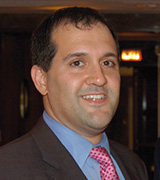- “La Parisienne” Goes to the Opera: Maria Callas as Priestess
- Over 40 US Policymakers Commemorate the 50th Dark Anniversary of the Turkish invasion in Cyprus at 39th Annual PSEKA Conference
- Remembering The Turkish Invasion of Cyprus and The Fight to Flee with Famagusta Native and Founder of Aktina FM Elena Maroulleti
- Marc Chagall And Greece: A Love Story
- $17 Million AHEPA Gift Will Open Doors For A Generation Of Students
Who Lost Turkey?!

Endy Zemenides
Over the past few weeks – and in some circles, over the past year – a debate has raged on over who has lost Turkey. After all, Turkey was for many Westerners the great Islamic hope, a bridge between East and West, Europe and the Middle East. Even those that now criticize Turkey wax nostalgically about the early years of the reign of Erdogan – recalling democratic and economic reforms, promises of greater religious freedom, a “zero problems with neighbors” foreign policy, and peace initiatives with the Kurds.
The present debate is amusing to those of us intimately involved in international advocacy, because for years the State Department, the foreign policy establishment, indeed many in our own community have dismissed warnings about Turkey as overblown, have lectured us about what a critical ally Turkey is to the West, and have gone as far as to call us rabid nationalists. It is tempting to just stand up and say “I told you so,” but the stakes are too high to engage in such one-upmanship. We must really understand how and why the West has reached the point it has with Turkey.
There are some on my side of the fence who argue that there is no strategic value of an alliance with Turkey. They are wrong. In real estate, the mantra is “location, location, location.” Turkey certainly has that – spanning two continents, touching three seas, part of multiple regions (SE Europe, the Balkans, the Caucuses, Central Asia, the Middle East), in control of a major waterway, and bordering some of the world’s most critical flashpoints. It has a youthful population of 75 million, NATO’s second largest military, and a growing economy. Turkey has penetrated the greater Middle East with cultural product and commercial investment, and is positioned to be a key energy hub for resources coming from Central Asia, from the Middle East, and from the Eastern Mediterranean. This is not a power that can be trifled with.
But power is not so easily translated into responsibility. There obviously tantalizing potential in what Turkey can be, but that potential has not become reality. Unfortunately, leaders and intellectuals in the West have been pretending for a while now that it has. Turkey’s “fans” all over the world are too eager to trumpet – and exaggerate – its progress and paper over its warts. Yet facts remain stubborn little things. Consider the following:
This is not the first time during the Erdogan era Turkey has stifled Western military efforts
To be surprised over Turkey’s resistance to assist in military efforts against ISIS is to be willfully blind. Indeed, Turkey rebuffed President George W. Bush’s request for a northern front against Iraq, and was an obstacle to George H.W. Bush’s efforts to help Kurds after the first Iraq War. Why slight – only slight – progress with the Kurds has made everyone forget Turkey’s paranoia over the Kurdish issue is a mystery.
Turkey never had a “zero problems with neighbors” foreign policy
This foreign policy doctrine was constantly trumpeted in Western capitals and among foreign policy analysts, but this was one of the great frauds in international relations. The “zero problems” period was marked by: a rupture of Turkey’s alliance with Israel; the continued occupation of Cyprus with an extra – Turkey now refused to comply with the terms of its Customs Union with the EU, which mandated opening its ports and airspace with the Republic of Cyprus; an increase of naval incursions into Greek territorial waters; hostility with Baghdad; and the breakdown of the Armenian Protocols. “Zero problems” seemed to have been extended primarily to AKP/Muslim Brotherhood leaning groups.
Turkey is as discriminating against the “other” than ever before
The shift from a Kemalist structure to a more religious regime gave religious minorities – especially our Ecumenical Patriarchate – more hope. But the only consistency that Turkey has exhibited on religious freedom over the past decade is to increase it for its AKP base while shifting the goal posts for other religious minorities. The lowest hanging fruit of all – opening the Halki Theological Seminary – has been the subject of the biggest tease campaign of all time (with at least a dozen “it’s about to open” promises.)
Turkey has not been constructive on Cyprus
We have been lectured for a decade on Turkey’s support of the Annan Plan, but without any analysis over that this support came after they were sure their priorities (on remaining guarantors, having an explicit right to intervene and not having to remove its occupation troops immediately) were all met. The “cooperative” Turkey in Cyprus is a myth – settlement activity continues, occupation forces have not been reduced, and threats of military force persist. If this constitutes “cooperation” for State, nothing short of another invasion must be their standard for intransigence.
President Obama once promised he’d be the type of leader who would tell people what they needed to hear and not what they wanted to hear. That stern talk is apparently not yet forthcoming with Turkey. In fact, too many people are convinced that Erdogan is the sole problem.
Next month, I will explore the sources of this Turkish conduct.











0 comments